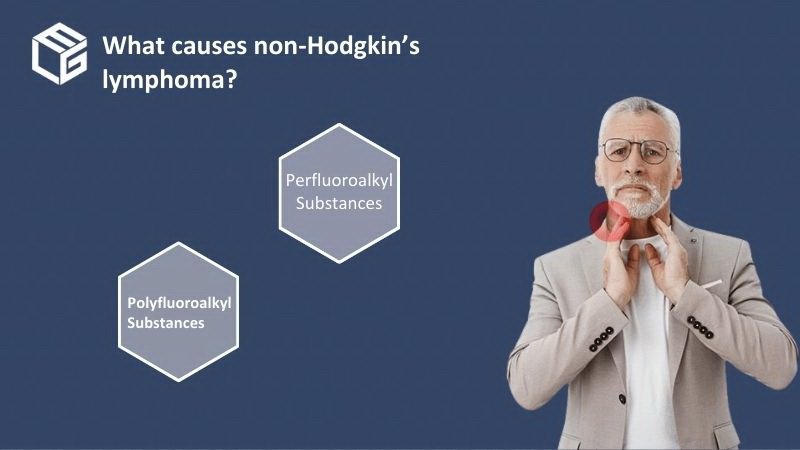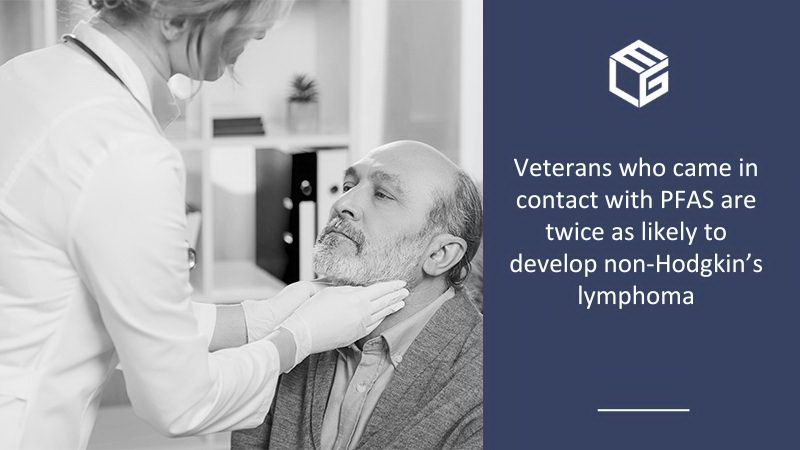Firefighters who use AFFF are 1.5 times more likely to develop non-Hodgkin's lymphoma
As a very effective fire suppressant, AFFF is also extremely dangerous to firefighters and the people who spend time where it was used.
This is because it contains between 50% and 98% PFAS, exposure to which can result in non-Hodgkin's lymphoma.
AFFF was devised in 1967, and since then, it has been used extensively by civilian and military firefighters to extinguish fires stemming from flammable liquids and gases.
Nonetheless, there are many non-toxic alternatives to AFFF, such as:
- fluorine-free firefighting foam: this is a synthetic-based foam containing surfactant blends and polysaccharides, and it extinguishes fires by creating a blanket of bubbles
- dry chemical agents: a dry chemical agent uses a pressurized dry chemical powder to extinguish fires and is very effective against hazardous fires
- C6 firefighting foam concentrates: they work like AFFF but with a more advanced formula of concentrates and are less harmful, but they still contain toxic chemicals
A study found that while the U.S. average incidence of non-Hodgkin's lymphoma was 0.90, the incidence of this cancer for people exposed to PFAS was 1.06. This is comparable to firefighters who are regularly exposed to PFAS by using AFFF. If you want to file a claim for AFFF exposure, whether you are a civilian or military firefighter, you must meet these eligibility requirements:
- you must have used AFFF regularly on the job
- you must have a diagnosis of non-Hodgkin's lymphoma
- you must have been discharged other than dishonorably if you were a military firefighter
You will also have to send our diligent attorneys your employment or military records, which you must retrieve, and your medical records so that they can properly review your case. After a thorough assessment, they will let you know whether you can file a claim for AFFF exposure with the liable companies. Even if you doubt you are eligible, we advise you to give us a call, as there might be something you are overlooking that might qualify you for compensation.


